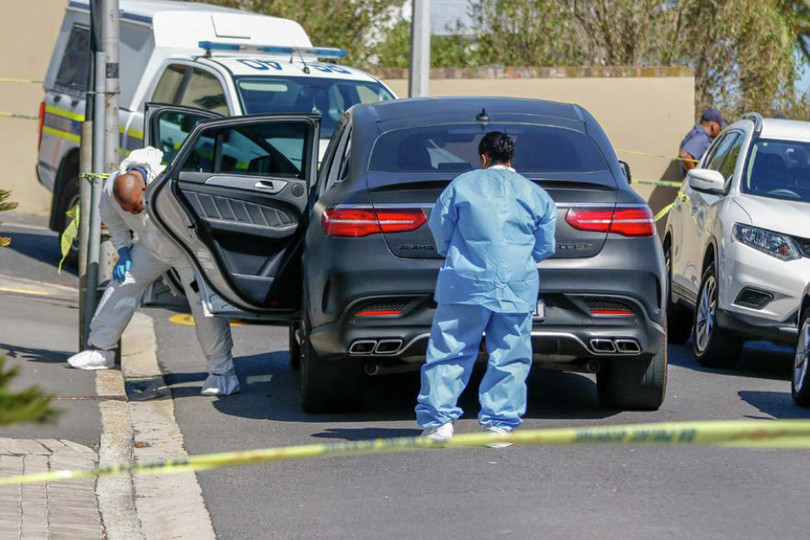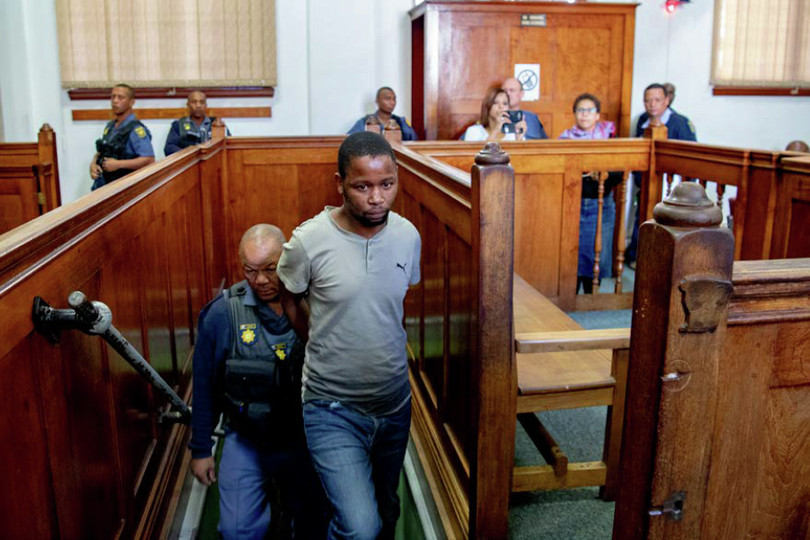Violence aimed at lawyers threatens to undermine the criminal-justice system in South Africa
Well-known Cape Town defence lawyer William Booth was shot at during an assassination attempt on 9 April by two armed suspects outside his home in Higgovale, an upmarket suburb at the base of Table Mountain. The suspects missed, and Booth survived unharmed.1 Booth has received other death threats.2
Booth rose to prominence in Cape Town as one of the city’s leading criminal lawyers, whose clients include alleged underworld figures. South African media reported that his clients Mark Lifman and André Naudé have had criminal involvement in the nightclub security industry.3
This incident is the latest in a pattern of attacks on criminal lawyers in South Africa: five other prominent Cape Town lawyers have been assassinated, or survived an assassination attempt, since 2016 (see Figure 6). Lawyers who defend criminal figures may become vulnerable to being targeted with violence or otherwise pressured into compromising their professional integrity. The implications for the criminal-justice system may be immense.
The vulnerability of defence lawyers
Research conducted by the Global Initiative on criminal organizations in Cape Town and elsewhere has revealed that some criminal lawyers may be drawn into the gang ecosystem. While the reasons behind the hit attempt on William Booth remain unclear, other lawyers in similar positions have come into the line of fire after disputes with their criminal clients.
Some lawyers become well known for representing gang members. After a successful defence of one member, they may become a trusted ‘go-to’ lawyer for other members of the same gang. This may be a lucrative business opportunity and help attract new clients. Some, including William Booth, may also become public figures, in part due to the notoriety of some of their clients.
Figure 6 Assassinations and assassination attempts on South African defence lawyers between 2017 and 2020.
SOURCE: Compilation of media reporting.
Some lawyers work predominantly for gangs because gang members were their first clients who helped build their business, or because that has been a traditional focus of their family’s legal practice, or because gang leaders pay them a retainer (a regular payment in exchange for being available to work as needed), which is very enticing for a young attorney starting out, or because gangsters can afford to pay lump sums up front.4 Most become involved slowly at first, but later are rapidly caught up in the underworld as clients recommend them to others or come to rely on them more heavily.
But this lucrative work may bring its own risks. Lawyers may come to know too much about a client’s business through the steady drip of information that they receive, and thus become entangled in a web of intrigue which ultimately renders them vulnerable.
Attorneys, by the nature of their profession, have access to confidential and sensitive client information. Through their interactions with clients or other contacts, some may come to possess damning information which, if revealed, could have dire consequences. After the death of Noorudien Hassan, it was discovered that he had access (likely through a senior police official) to a highly secret police intelligence report. This report contained details of an informant linked to Project Impi – a major investigation into gun smuggling in South Africa which has revealed how stolen police and military firearms were passed to gangsters – that would likely have sent ripples through gang circles.5
Choice of clients may also anger rival criminal groups. Advocate Pete Mihalik represented Ralph Stanfield, the leader of the 28s, when he was charged with assault and intimidation. Mihalik also represented Jerome and Colin Booysen, leaders of the Sexy Boys gang, which is a direct rival of the 28s.6 Representing rival gangs can cause gang leaders to question an attorney’s loyalty to their own gang, and disloyalty is not tolerated.
Criminal lawyers may come under pressure from their clients to cross ethical and legal lines. This may include becoming conduits for corruption – for example, by delivering bribes to police, or providing safe storage for money and valuable items – which may, ultimately, make them targets. All attorneys are required to establish trust accounts to hold money on behalf of a client. An attorney is only entitled to access these funds once he or she has provided legal services to, or incurred expenses on behalf of, the client. Often gang leaders with access to large sums of money derived from illegal activities, who do not want to draw attention to themselves, deposit it into attorneys’ trust accounts under the guise that it is intended for legal services. Essentially, the attorneys then become ‘gatekeepers’ to the underworld fortune.7


Left: A forensics team examines the car in which Cape Town lawyer Pete Mihalik was shot dead in 2018 outside his son’s school.
Right: Court proceedings during the Pete Mihalik murder case at the Cape Town Magistrates’ Court on 29 November 2018.
© Adrian de Kock/Media 24 via Gallo Images
The laws of the underworld
Over time, gang lawyers may be drawn into the vagaries of underworld politics. The extent to which they themselves are compromised, or the close connections to their clients they have built up over many years, may make it very difficult to extricate themselves from volatile situations.
Gangs, frustrated at a lawyer’s unwillingness or inability to fulfil their demands, or disturbed by a lawyer’s representation of a rival gang member, may respond according to the laws of the criminal world: with violence. As volatile, vengeful groups, gangs use violence as a key transactional tool and way of exerting power.
Corrosion of the legal system
The fear created by violence and threats of violence directed at lawyers may have far-reaching consequences. In a climate of fear, gang-linked lawyers may see no other option than to compromise their professional integrity, for example by bribing other members of the criminal- justice system. The effectiveness of an adversarial legal system relies heavily on the ability to trust the integrity of both defence and prosecution lawyers and their teams, and the ability of lawyers to represent their clients or the state without fear or favour. The apparent rise in violence directed at lawyers in South Africa may jeopardize this system.
Notes
-
Daily Maverick, Cape Town attorney William Booth shot at in his garage, escapes unharmed, 9 April 2020, https://www.dailymaverick.co.za/article/2020-04-09-cape-townattorney-william-booth-shot-at-in-his-garage-escapesunharmed/. ↩
-
Tshego Lepule, Top lawyer William Booth gets death threat, IOL, 29 November 2016, https://www.iol.co.za/news/toplawyer-william-booth-gets-death-threat-2094244. ↩
-
Aron Hyman, Top attorney William Booth survives murder attempt by masked gunmen, Times LIVE, 9 April 2020, https://www.timeslive.co.za/news/south-africa/2020-04-09-top-attorney-william-booth-survives-murder-attemptby-masked-gunmen/. ↩
-
Discussion with former gang lawyer, November 2019, Cape Town. ↩
-
Caryn Dolley, The Enforcers: Inside Cape Town’s Deadly Nightclub Battles, Cape Town and Johannesburg, Jonathan Ball Publishers, 2019. ↩
-
Tom Head, Pete Mihalik, The South African, 30 October 2018, https://www.thesouthafrican.com/news/who-ispete-mihalik-gang-members-represented/. ↩
-
David Middleton and Michael Levi, Let sleeping lawyers lie: Organized crime, lawyers and the regulation of legal services, British Journal of Criminology, 55, 4 (July 2015), 647–668. ↩
